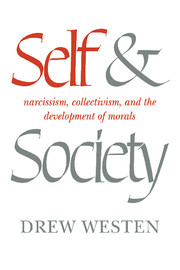5 - Social theory in sociology and anthropology
Published online by Cambridge University Press: 11 November 2009
Summary
In his intellectual history of social thought from 1890 to 1930, H. Stuart Hughes argues that the two issues which permeated the thought of the theorists who paved the transition from philosophy to social science were the questions of what human nature is, and how an observer endowed with it can study it objectively (1958, p. 24). The first issue, the nature of human nature, is of course an old one, and efforts to answer it in the last hundred years have formed the content of the social sciences. In sociology and anthropology, as in psychology, the last few decades have witnessed a wariness and weariness of grand theories; hope has faded that an overarching perspective in any of the social disciplines can capture reality without domesticating it into vapid overgeneralization. The result has been greater attention to lower order generalizations which hover much closer to observation. This has clearly had a salutary effect, promoting a more thorough understanding of specific aspects of social life and behavior, and discouraging metaphysical abstractions with only minimal grounding in reality.
Yet in turning to theories of the middle range, one encounters the disconcerting fact that, over time, such theories often prove equally falsifiable and worse still, uninteresting. The paradox of microtheories is that they tend either to prove false, and are therefore discarded; or true, and therefore exhausted. The theorist who spins a larger theoretical yarn must always remember that he is, like the writer of a historical novel, doing an enormous amount of background research for a project that in some respects resembles fiction, though he has the gratification of writing a novel instead of a short story.
- Type
- Chapter
- Information
- Self and SocietyNarcissism, Collectivism, and the Development of Morals, pp. 189 - 215Publisher: Cambridge University PressPrint publication year: 1985



